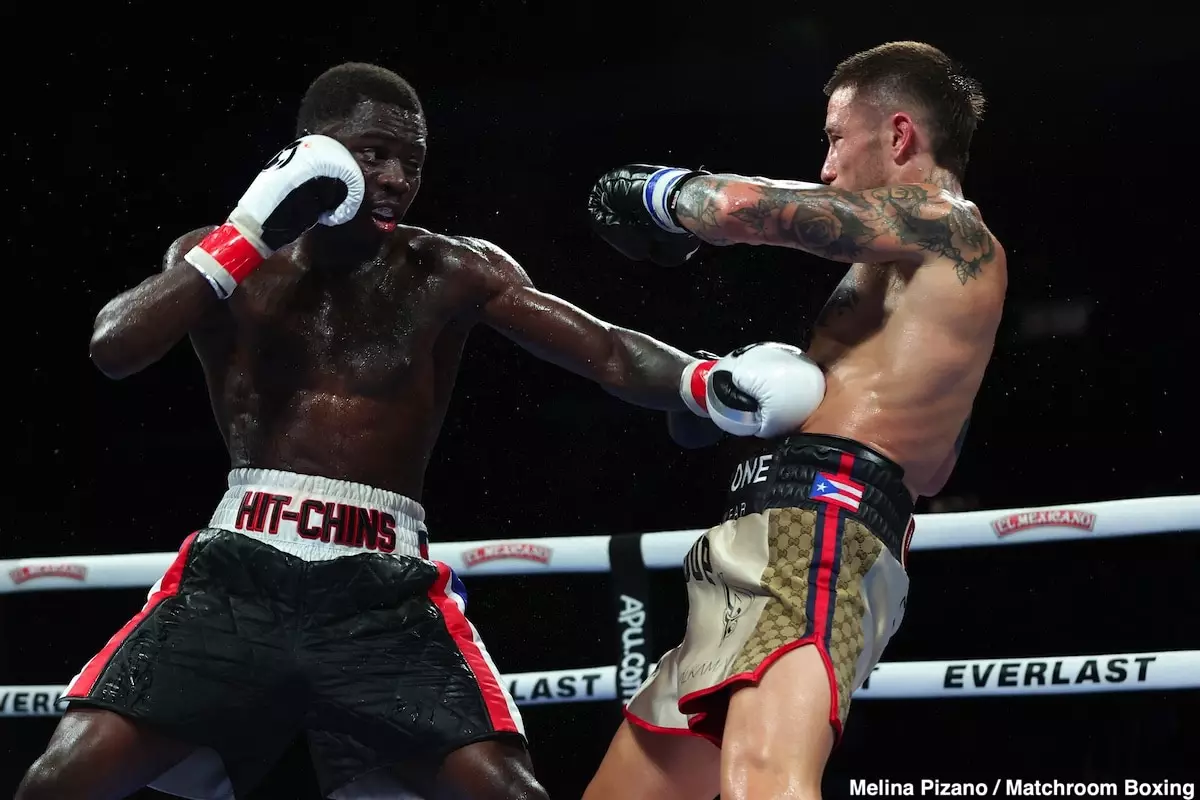Last night was a whirlwind in the world of boxing, with events unfolding across the globe, captivating the attention of fans and analysts alike. One of the most significant bouts featured Richardson Hitchins from Brooklyn challenging Liam Paro for the International Boxing Federation (IBF) title in the 140-pound division. The fight culminated in a split decision victory for Hitchins, which not only marked a pivotal moment in his career—pushing his record to an impressive 19-0 (7 KO)—but also raised eyebrows due to some questionable scorecards that sparked debate among commentators, fighters, and boxing aficionados.
The match showcased a display of perseverance and strategy, particularly significant given the high stakes involved. Paro began strongly, establishing himself as a formidable southpaw, particularly in the initial stages where he seemingly dominated the first four rounds without much resistance. However, as the fight progressed, Hitchins was compelled to re-evaluate his tactics at the behest of his corner, which urged him to elevate his performance. This shift proved crucial. By the middle rounds, Hitchins emerged stronger, frequently employing his jab and successfully countering Paro’s assertiveness.
As the fight unfolded, both boxers sustained cuts that dramatically underscored the intensity of their exchanges. With each passing round, Hitchins’ determination began to overshadow Paro’s earlier dominance, leading to a scenario where Hitchins not only regained control but may have rightfully secured a majority of the final rounds. Judging from the flow of the fight, it’s hard to argue against the consensus that Hitchins emerged as the rightful victor, despite the dissenting scorecard from judge Nelson Vazquez.
While boxing often walks a fine line between art and subjective judgment, this bout exemplified the potential for scoring mishaps to overshadow the sport’s spirit. Vazquez’s scorecard indicating a 117-111 victory for Paro incited outrage and confusion, leading to widespread condemnation from various quarters, including commentary teams and fellow boxers. DAZN commentator Corey Erdman aptly summarized the situation, labeling the scorecard as “unfathomable,” while former champion Sergio Mora echoed similar sentiments, calling it appalling and suggesting that such judging should not go unaddressed.
Responses from the boxing community were swift, with Shakur Stevenson humorously lamenting the absurdity of the score. This incident furthers an ongoing conversation about the reliability of boxing judges and the subjective interpretations that fuel much debate within the sport. The recurrence of baffling scorecards across different bouts raises pertinent questions about the efficacy and transparency of boxing officiating, shedding light on a systemic issue that continues to plague the sport.
Ultimately, Hitchins ascended to champion status through sheer will and tenacity, battling not only his opponent but also the shadow of dubious judging. Yet, as the dust begins to settle, the focus shifts from the accolades of victory to the discussions surrounding the integrity of boxing itself. Fans and analysts alike want to know how such discrepancies in scoring can be monitored and corrected moving forward to preserve the sanctity of the sport.
The saga of boxing’s judging is anything but new; history has provided ample examples of wild and controversial scorecards. Vazquez’s questionable assessment may well find a place in boxing’s not-so-glorious history, standing alongside other infamous scorecards that have drawn ire. The enduring nature of these events suggests that as the sport evolves, so too does the necessity for reform, ensuring that the best fighters not only participate in combat but emerge victorious based on fair and accurate assessments.
As boxing fans reflect on last night’s events, they are left balancing the triumph of Richardson Hitchins with the frustration surrounding flawed judging. The sport teeters on the edge of glory and controversy, raising pivotal questions about its future. The question left hanging in the air is this: Can boxing uphold its integrity while navigating through the storm of subjective scoring and scandal? Only time will tell, but for now, the focus lies on celebrating a new champion while advocating for change in an industry ripe for improvement.

